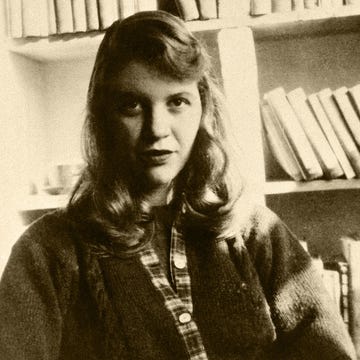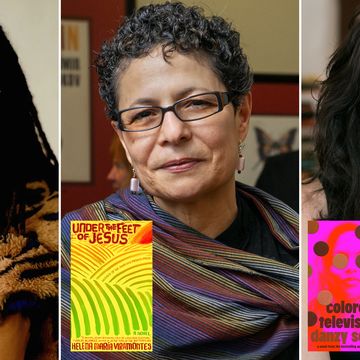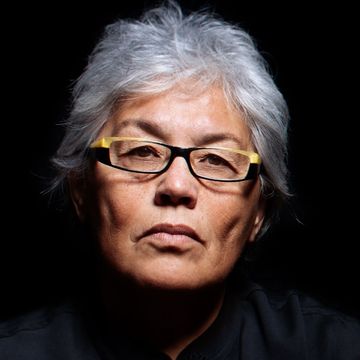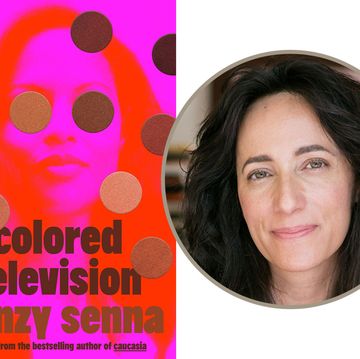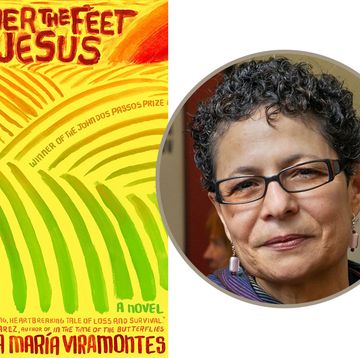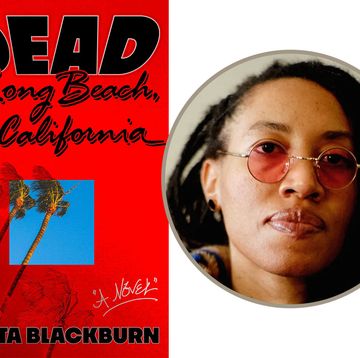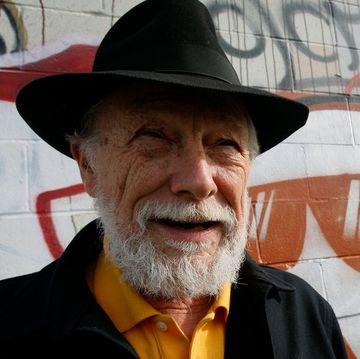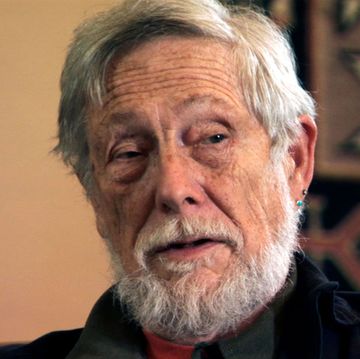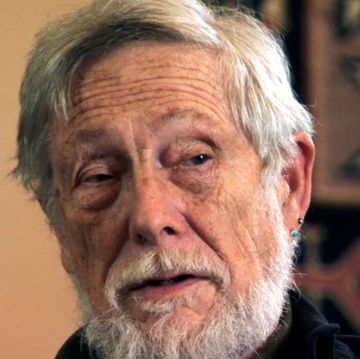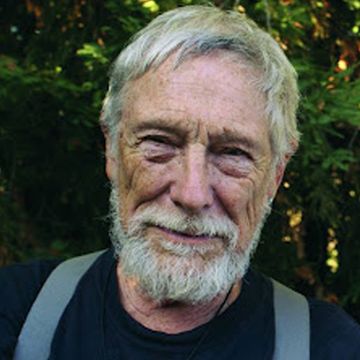Laila Lalami has long written about the tension between alienation and belonging, conditions that often coexist within a single person’s experience of the world. She explores this dichotomy in different settings, time periods, and plotlines, but these themes are always present, foundational to her characters’ stories. Her most recent novel, The Other Americans, published in 2019, is the first in which she fully delves into questions of familiarity and estrangement in a contemporary American context.
While Lalami has lived in the United States for much of her life, she’d never previously tackled for an entire book its present-day lived political realities. Reading her books in order of publication, it’s clear that she’s slowly changed her focus from her nation of origin, Morocco, to her adopted home in the U.S.
The author’s fiction has always been political but not polemical, and indeed, Lalami does not seem interested in moralizing. Her characters are affected by systems of power, and within those systems, they often grapple with their beliefs and values. Yet the characters often compromise their ethics, owing to circumstances both within and beyond their control, resulting in moral ambiguity.
Lalami’s debut, Hope and Other Dangerous Pursuits, is mostly set in 1990s Morocco, a time of rising religious influence and high unemployment rates. The book, sometimes considered a novel-in-stories, focuses on 4 very different characters—Murad, Aziz, Halima, and Faten—who, along with 26 others, attempt to cross the Strait of Gibraltar to migrate to Spain in search of better living conditions, employment, or safety. Some make it there; some are forced to turn back. In chapters covering the events before and after the night of the crossing, readers see how characters do or don’t belong in their homes and communities. Much as in The Other Americans, acceptance can be conditional, but the reasons for this differ between the 2014 American and 1990s Moroccan contexts. Where the protagonist Nora deals with professional discrimination because of her gender and race, for example, Hope’s Faten suffers rejection from a new friend’s secular family because of her religious practice and class, and Halima, a mother of three whose own mother blames her for Halima’s husband’s abuse, attempts to get a divorce despite the social consequences she knows she’ll face.
Secret Son, Lalami’s second novel, is a more straightforward coming-of-age story that largely follows a young man, Youssef El Mekki, as he discovers that the father he thought had died in his infancy was nothing more than a fabrication and that his real father is alive and thriving. Taking place in a Morocco that faces both “Islamic fundamentalism and corrupt liberalism,” as Lalami puts it, the story puts systemic issues at play—poverty and government neglect, for example, and the way religious extremism can fill the resulting vacuum—but the novel’s true heart is in Youssef’s emotional journey. Having grown up in a run-down Casablanca neighborhood, Youssef is enchanted by his real father’s wealth and status, especially when he finds acceptance and even a kind of nurture at the patriarch’s feet. Meanwhile, he grapples with lies his mother has told him his whole life, harshly judging her, without being able to recognize the immense difficulty of her circumstances as a young, unmarried, working-class woman who became pregnant out of wedlock. Just as Nora, in The Other Americans, has to face her father’s infidelity and reckon with whether his affair changes who he was to her in life, Youssef must come to terms with the secrets his mother kept. Although their backgrounds and circumstances are entirely different, both characters’ narratives arrive at coming-to-adulthood turning points in which they realize that their parents are full, complex humans bearing the weight of their own histories.
Although a side plot in Secret Son includes Youssef’s half sister’s life in California, where she’s attending university, as expected of an upper-class, well-educated Moroccan youth, Lalami’s third novel, The Moor’s Account, is a clear shift toward her adopted nation and its colonial past. The book is historical fiction inspired by the enslaved “negro alárabe” from Azemmour, Morocco, who took part in the 1527 Narváez expedition, an attempt at colonization led by a Spanish conquistador and famously chronicled by a man named Cabeza de Vaca. Lalami writes an alternate travelogue from the Moroccan native’s perspective: Mustafa al-Zamori describes his position as an outsider, which began with his professional ambitions as a young man, before relating how he later became enslaved and traveled to Florida with his second buyer to take part in the Narváez expedition. Kept apart from the other men at first by his race and enslaved status, Mustafa finds that a series of hardships begins to erase the differences between them. Encounters with various Indigenous tribes highlight both moments of alienation and invitations to belong, as he and his fellows are repeatedly asked to take part in the daily life of various villages but are also sometimes exploited or held at arm’s length owing to their foreignness. By novel’s end, Mustafa’s fate is firmly intertwined with that of the continent on which he was able to regain his freedom—he makes a home on this land, weaving his life together with those of its Native peoples. Mustafa’s narrative reveals the potential for beauty, cooperation, and coexistence that the European colonizers did not care to explore, instead enacting violence that created deep and lasting wounds that still affect both Native peoples and immigrants in our own time and place.
The Other Americans may be Lalami’s most approachable book for American readers, simply because its themes of belonging and alienation unfold in our contemporary United States and reference many political realities of our day—realities that can be traced, at least in part, centuries back to Mustafa’s era. The author’s fourth novel is set entirely in the U.S. and follows a hit-and-run case through the various people involved—the victim, his wife, his daughters, the detective investigating the event, and more—in a post-9/11 and post–Iraq War American landscape. As in Hope and Other Dangerous Pursuits, the characters are migrants in a disappointing promised land or else returning home. As in Secret Son, questions of a person’s shifting place within their family and community arise. And as in The Moor’s Account, unlikely allyships develop and love blossoms in unexpected places.
“I often look at things from two different perspectives, as insider and as outsider,” Lalami wrote in a Q&A on her website. “I’m endlessly fascinated by the idea of home—why we leave it, how we make it, how we narrate the journey, the yearning that it creates in us, etc.” In her work, Lalami dramatizes the dynamics of places that change over time, transforming a person’s belonging into alienation and vice versa. The stories we tell about these themes can either unite or divide us, and in The Other Americans, we witness both occurring. It was a natural step for the author to follow her latest novel with Conditional Citizens: On Belonging in America, her first book-length work of nonfiction, which examines the limits of citizenship, civil rights, and legal protections for those Americans who are marginalized by systemic racism, immigration status, and gender-based legislative discrimination. But Lalami’s fiction is softer, drawing readers closer, one chapter, story, and voice at a time, to an awe-inspiring wisdom. As Mustafa writes in the final pages of The Moor’s Account, “Maybe there is no true story, only imagined stories, vague reflections of what we saw and what we heard, what we felt and what we thought. Maybe if our experiences, in all their glorious, magnificent colors, were somehow added up, they would lead us to the blinding light of the truth.”•
Join us on March 21 at 5 p.m. Pacific time, when Lalami will appear in conversation with Alta Journal books editor and guest California Book Club host David L. Ulin and special guest Danzy Senna to discuss The Other Americans. Register for the Zoom conversation here.

